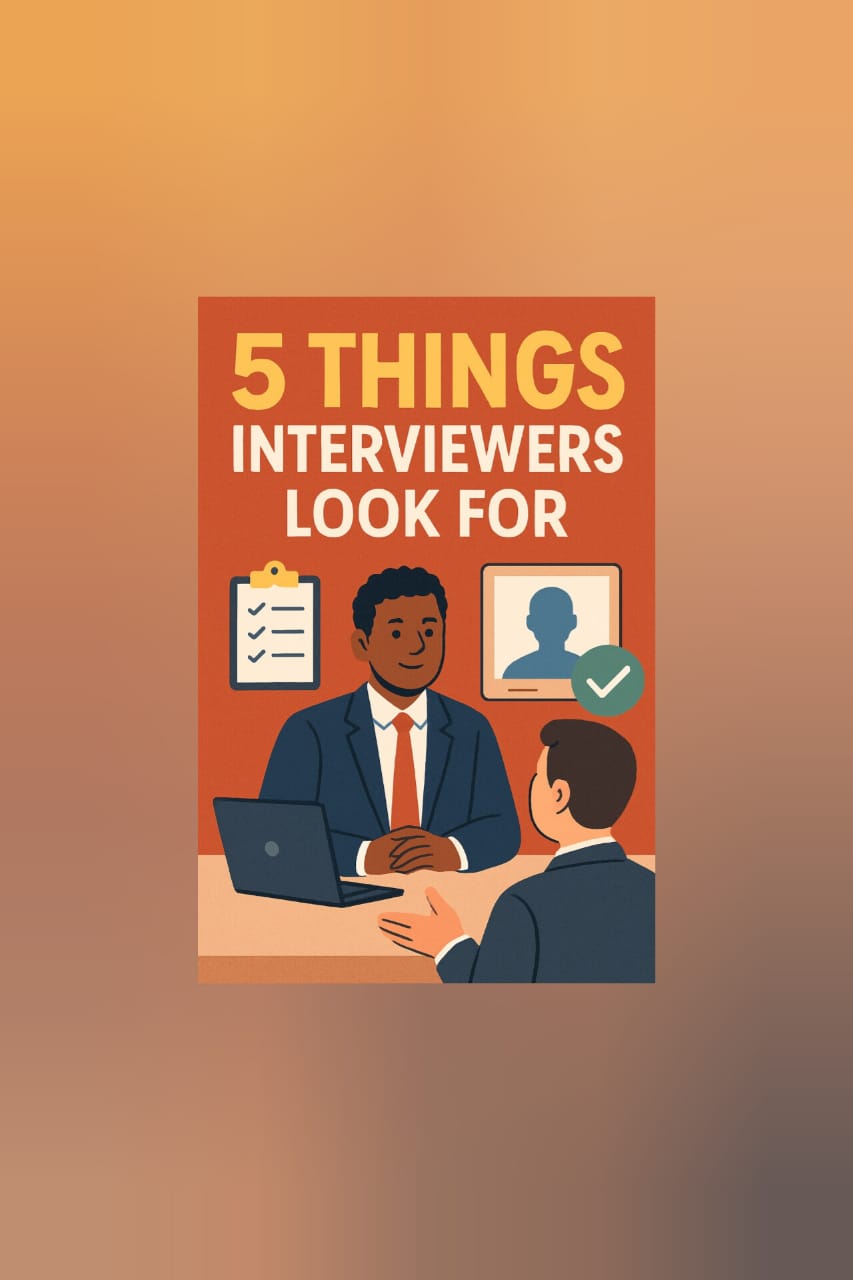
India’s workforce is changing faster than ever. The big cities that once dominated the talent map Mumbai, Bangalore, Delhi are no longer the only hubs for skilled professionals. Today, a quiet revolution is taking shape in Tier-II cities like Indore, Kochi, Jaipur, Surat, and Lucknow.
This shift isn’t just about geography, it's about how people work, what they value, and where they want to live. Welcome to the era of the Great Talent Migration.
Let’s explore why professionals are moving away from metros and how platforms like AplusHub are powering this remote hiring revolution.
What’s Fueling the Great Talent Migration?
For decades, India’s job seekers have flocked to metros in search of better salaries and opportunities. The narrative was simple: if you wanted to grow, you moved to a big city.
But not anymore.
The pandemic cracked open a truth we’d long ignored: great work doesn’t need a great address. Companies realized productivity isn’t defined by pin codes. Employees realized happiness isn’t tied to city skylines.
So, what’s driving this change?
1. Remote Work Normalization
Post-2020, hybrid and remote work became mainstream. Businesses that once hesitated now rely on distributed teams for everything from tech development to customer support.
This flexibility allows talent from Tier-II and Tier-III cities to compete fairly. As long as you deliver results, your location doesn’t matter.
2. Quality of Life Priorities
Big cities are expensive, stressful, and overcrowded. Tier-II cities offer lower living costs, cleaner environments, and stronger community connections.
People now prioritize work-life balance, family proximity, and mental well-being over prestige addresses.
3. Better Infrastructure and Connectivity
With India’s digital backbone strengthening faster internet, co-working hubs, and reliable logistics professionals in smaller cities can access the same resources as those in metros.
Even clients abroad collaborate effortlessly through platforms like Zoom, Slack, and Notion.
4. Expanding Educational Ecosystems
Tier-II cities are no longer “backward” in education. Institutes in Coimbatore, Chandigarh, or Nagpur produce top-tier engineers, designers, and marketers who rival metro graduates in skills often at more sustainable costs.
5. Corporate Cost Optimization
Businesses are also moving beyond metros. Hiring remotely allows them to tap into high-quality, affordable talent pools, reducing operational costs without compromising on skills or output.
Why Tier-II Cities Are Winning the Remote Hiring Race
Let’s break down what makes Tier-II cities so appealing not just for employees but also for employers.
It’s not just a cost advantage. It’s a strategic edge.
1. Untapped Talent, High Retention
Unlike in metros, where job-hopping is rampant, professionals in Tier-II cities display greater stability and loyalty.
Companies that hire from these regions often experience longer employee retention and stronger cultural alignment. This consistency directly translates into higher productivity and reduced hiring churn.
2. Lower Hiring Costs, Higher ROI
Salary expectations in Tier-II cities are reasonable. Combine that with lower attrition, and the overall cost-to-company significantly drops.
A developer in Jaipur might deliver the same results as one in Bangalore but at a 30–40% lower cost. That’s a win-win for startups and SMEs operating on lean budgets.
3. Rising Ecosystem Support
Government initiatives, incubators, and startup parks are now spreading beyond metros. Cities like Kochi have their Infopark, and Indore boasts the Smart City Project both nurturing tech and creative communities.
This growth encourages talent to stay local and build meaningful careers without needing to migrate.
4. Digital Collaboration Tools Make It Seamless
Platforms such as AplusHub act as bridges between remote-ready professionals and forward-thinking organizations.
By curating pre-vetted talent pools and offering remote onboarding support, AplusHub helps companies scale faster while empowering Tier-II talent with global exposure.
5. Stronger Work Culture and Motivation
Remote workers from smaller towns often show higher motivation and lower burnout rates. They value flexibility and strive to prove themselves on global platforms.
This dedication is redefining what it means to be “employable” in India’s digital economy.
How Companies Are Rethinking Hiring Strategies
The traditional hiring playbook campus drives in metros, relocation packages, and in-office interviews is getting outdated.
Organizations are now looking for agility and adaptability in recruitment. And Tier-II hiring fits perfectly into that vision.
Here’s how smart businesses are evolving:
1. Adopting Hybrid Talent Models
Companies are building blended teams, a mix of in-office metro employees and remote Tier-II professionals. This model ensures both collaboration and cost efficiency.
It also fosters diversity, creativity, and innovation as varied perspectives enrich company culture.
2. Investing in Skill Development
Forward-thinking companies now provide upskilling opportunities to remote hires through online training, certifications, and workshops.
This not only improves quality but also builds long-term loyalty. AplusHub, for instance, partners with employers to help bridge skill gaps and prepare Tier-II candidates for remote-first roles.
3. Using AI for Smart Matching
AI-powered platforms like AplusHub help recruiters find the right match faster. Instead of filtering through hundreds of resumes, companies receive curated shortlists of vetted, skilled candidates from emerging cities.
This shortens the hiring cycle dramatically and improves the success rate of placements.
4. Emphasizing Outcomes, Not Attendance
Performance is no longer measured by “desk time.” Modern employers track output, creativity, and collaboration not presence.
That shift alone has made remote hiring from Tier-II cities incredibly viable.
A Closer Look: Tier-II Cities Leading the Shift
Let’s zoom into a few examples of where this movement is most visible.
Indore: The Emerging IT Powerhouse
Known as India’s cleanest city, Indore now also boasts a thriving startup culture. Its young workforce, supported by excellent educational institutes and growing infrastructure, is attracting IT companies looking for long-term stability.
Kochi: The Coastal Tech Haven
Kochi’s Infopark has positioned it as Kerala’s tech hub. The city combines global connectivity with relaxed living, a dream for remote professionals who value balance and growth.
Jaipur: The Creative Capital
From designers to digital marketers, Jaipur is buzzing with creative talent. Its vibrant ecosystem supports freelancers and entrepreneurs alike, making it a go-to destination for hybrid roles.
Surat & Ahmedabad: Manufacturing Meets Digital
These cities, long known for their business acumen, are now merging traditional commerce with digital innovation. Remote finance, data analytics, and e-commerce roles are booming here.
How AplusHub Is Powering the Remote Hiring Revolution
This is where AplusHub comes in connecting the dots between talent-rich Tier-II cities and forward-looking global companies.
AplusHub’s mission is simple yet powerful:
Empower skilled professionals from emerging cities and help companies discover, hire, and manage them remotely.
Here’s how they’re making that happen:
1. Pre-Vetted Talent Pools
AplusHub curates professionals across domains tech, marketing, design, operations, and customer success ensuring every candidate meets international remote work standards.
2. Streamlined Hiring Process
Their platform automates job matching, skill assessments, and onboarding. This means faster turnaround for employers and less friction for job seekers.
3. Employer Branding for Remote Culture
AplusHub helps businesses build remote-first employer brands, providing resources to ensure inclusivity, engagement, and performance management even across distributed teams.
4. Career Empowerment for Tier-II Professionals
Through mentorship, training programs, and networking opportunities, AplusHub supports professionals from non-metro cities to thrive globally without leaving their hometowns.
5. Partnerships That Scale
From startups to multinational firms, AplusHub partners with organizations that believe in borderless hiring and decentralized opportunity creation.
In doing so, they aren’t just filling jobs, they're reshaping India’s workforce geography.
The Economic Ripple Effect
When professionals stay and work from their hometowns, the impact goes far beyond the individual.
It sparks local economic growth, reduces urban congestion, and promotes sustainable living patterns.
Here’s what that looks like in action:
-
Increased local spending boosts Tier-II economies.
-
Brain drain reverses as top talent stays closer to home.
-
Urban stress reduces as migration pressures ease.
-
Families stay together, improving mental and social well-being.
-
Small businesses thrive around new income hubs.
Essentially, remote hiring is rebalancing India’s economic map making opportunity more evenly distributed.
Challenges That Still Need Solving
Of course, no transformation is without roadblocks.
While Tier-II hiring is accelerating, there are challenges both employers and employees must navigate.
1. Internet and Power Reliability
While improving, connectivity in smaller towns can still be inconsistent. Employers need contingency plans for remote support.
2. Cultural Adaptation
Companies must learn to integrate remote hires into the main culture seamlessly ensuring they feel equally valued and connected.
3. Skill Gaps
Not all Tier-II professionals have exposure to global workflows. Continuous learning, mentorship, and feedback loops are crucial for success.
4. Performance Measurement
Leaders must adopt clear metrics for output and collaboration focusing on results, not micromanagement.
Platforms like AplusHub play a critical role here offering both infrastructure and guidance for sustainable remote integration.
What’s Next: The Future of Hiring in India
We’re standing at a fascinating crossroads.
Metros will always remain important, but they’ll no longer monopolize opportunity. The next decade will belong to cities that are smaller, smarter, and more connected.
And the companies that recognize this early those that build inclusive, remote-first ecosystems will gain a serious competitive edge.
Trends to Watch
-
Remote-first company policies becoming the norm
-
Tier-II upskilling academies multiplying
-
Employers embracing pay parity across geographies
-
Digital nomadism rising within India
-
AI-driven job matching redefining recruitment
AplusHub is already at the forefront of these shifts ensuring both sides of the market evolve together.
Conclusion: The New Geography of Opportunity
The Great Talent Migration is not a temporary phase, it's a long-term correction in how India works.
Tier-II cities have proven they’re not just backup options, they're the future of sustainable, distributed talent ecosystems.
For companies, it’s time to look beyond Mumbai and Bangalore. For professionals, it’s time to realize that your skills can shine just as bright from Indore or Kochi as they can from a metro.
And for platforms like AplusHub, this moment represents a mission fulfilled connecting ambition with access, and talent with opportunity.
Your Turn: Ready to Tap Into Tier-II Talent?
If you’re an employer seeking dependable, skilled remote professionals, start exploring with AplusHub today.
And if you’re a professional from a Tier-II city dreaming of global opportunities without relocating your future begins here.
Because the next chapter of India’s workforce isn’t being written in skyscrapers it’s being built right where you are.
Don’t stress about searching every career page or job site. Stay ahead with the latest opportunities from different sources right here!
Related Articles
Ever walked out of an interview thinking, “I nailed it!”—only to never hear back? Well, as a consultant who’s seen hundreds of interviews, let me spill the chai: there are 5 things interviewers always notice—consciously or not!
1️⃣ How serious are you?
If you haven’t read about the company or what they’re building, it’s game over. Pro tip: ask a thoughtful question or share a suggestion—it screams I care!
2️⃣ Problem-solving mindset.
When given a situation, the focus isn’t just on getting the answer right—it’s on how you think. Even if you can’t solve it, showing logical “solutioning” wins big points.
3️⃣ Your first impression game.
For in-person interviews: dress right (Don't surpass shoes), How & when you use Hand gestures, how you place your hand & legs, shoulders upright or not, Never compromise on "Smile on a face"- these cover 40% of the decision.
Online? Camera on, audio checked, and wear something that shows effort (no, not your favorite hoodie).
4️⃣ The project connection.
Come prepped with at least one project that aligns with the JD or what the founders are building. That’s their Sweet spot.
5️⃣ The trust trigger—eye contact.
Be confident, look them in the eye (yes, even on Zoom). Confidence builds credibility.
Because remember—you’re not just being interviewed, you’re being observed ! 👀
You've gone through an education system that probably never taught you anything about professionalism, logical deconstruction, and comfort with ambiguity. You may have tremendous bookish knowledge, but lacking these three attributes is an immediate invisible red flag that will stop you from getting the job or the promotion you always wanted.
Let's throw some light on the top-5 common mistakes that highlight your lack of these attributes, and what you should be doing instead
- Showing up late without informing your interviewer/coordinator - there are genuine reasons one could be running late, but that needs to be duly communicated ahead of the planned interaction. Inform every marked on an invite, drop a text or give a call, but keep your stakeholders informed. Their time is as much valuable as yours.
- Turning up unprepared for the interview - if you are turning up unprepared, why is it that you are turning up at all? why waste your and interviewer's time? You are better off declining the opportunity, instead of ruining your reputation unnecessarily. You must invest 1 hour to read about the company, the opportunity, some information in the public domain and so on, if you have chosen to show up for an interview.
- Going silent instead of communicating effectively with your stakeholders - it might come as an insight but everyone knows you would evaluate multiple opportunities before chosing one, everyone knows that your decision might be influenced by your loved ones, and everyone is okay with your being unsure, but nobody likes to be left wondering about what might be happening. So, good, bad or ugly, communicate, communicate and communicate! You'll build more relationships that you ever thought, and you never know, one or more of these relationships may turn gold in the times to come.
- Rambling stuff that does not make sense - let us fill you in on another secret, nobody - not even the most successful individuals can know everything about everything in the world. So, when presented with topics/questions you have no clue about, you got to either draw parallels from what you have expertise on, rationally break down the information you are presented with to come up with simple yet logical answers, or admit you do not know anything about this but can talk about something relevant to the opportunity being discussed in detail.
- Demanding a bomb without a concrete rationale - the whole world is underpaid, friends! who doesn't want more, but that's not how it works. Your next compensation cannot ignore your current and/or previous compensations. If you chose to take a sabbatical, took an opportunity by taking a haircut, or become an entrepreneur that eventually did not work out, you have to make peace with your decision. Nobody else had a say in that! You can definitely demonstrate additional skills/knowledge that you acquired during this period (that surely has a value), but that value isn't the only figure on which your next compensation will be decided on. So, learn about the market standards and try to limit your ask within the broadly acceptable range.
Let’s be honest — job hunting today feels like swiping right on a dating app where no one ever replies. Employers can’t find the right talent, job seekers chase ghost listings, and somewhere between “We’ll get back to you” and “Position closed,” everyone loses their sanity.
Enter Aplushub — the career saver we didn’t know we needed.
Why Aplushub Exists
Born from the chaos of the modern job market, Aplushub was built on one bold idea — quality over quantity. It’s not just another job portal flooding you with random roles. It’s a curated ecosystem that blends AI precision with human insight to filter out the clutter and keep only what truly matters: authentic, relevant, and verified opportunities.
What It’s Solving
Aplushub is tackling the biggest pain in job search — noise. Fake jobs, expired links, spam recruiters, and endless scrolling are replaced by clean, credible listings. The platform categorizes openings into Free Jobs (posted directly by employers) and Premium Jobs (handpicked by Aplushub’s research team from trusted sources and networks). So, no more digital wild goose chases — only jobs worth your time.
Remote Jobs? Absolutely.
Whether you’re working from your couch in Chennai or a café in Manali, Aplushub’s got you covered. The platform features a dedicated Remote Jobs section — tailored for professionals who value flexibility. It connects you with employers who believe talent shouldn’t be tied to geography.
Why It’s a Win-Win
For job seekers, Aplushub is your career compass — one dashboard, hundreds of genuine opportunities, and no shady “DM for job” drama.
For employers, it’s a hidden gem. Posting is free, candidate access is simple, and you get applicants who are genuinely interested — not bots in disguise.
Bonus Perk: The *OpenBook* Advantage
Here’s where Aplushub really flips the script — OpenBook, its transparency-first feature. It gives job seekers a peek into real hiring insights, company trends, and recruiter updates, turning job search into a smarter, more informed experience. No more guessing what employers want; OpenBook hands you the inside scoop to make data-backed career moves.
The Price Tag (Spoiler: It’s Almost Free)
Aplushub keeps things real and affordable. You can explore its free tier, test-drive premium access with ₹50/Month, or go all in with ₹499 for a full year— basically less than your monthly coffee budget to land your next big opportunity.
So whether you’re hiring, hunting, or just tired of the chaos — Aplushub is here to bring sanity (and a smile) back to your career journey.
👉 Visit AplusHub.com — where jobs finally make sense.




